Tan Hiep Phat Enhances Competitiveness and Fulfills Social Responsibilities
 | Reasons Behind Breakthrough Value of “Trà Xanh Không Độ” In a competitive beverage landscape where health-conscious consumers demand both quality and transparency, Trà Xanh Không Độ (Zero Degree Green Tea) has emerged as a ... |
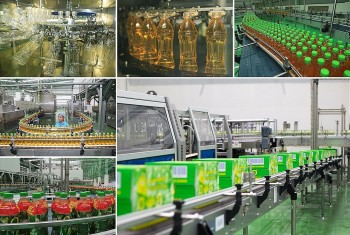 | Why Millions Trust Zero Degree Green Tea: A Story of Innovation, Quality, and Sustainability in Vietnam’s Beverage Industry In a market as dynamic and discerning as Vietnam’s, one bottled tea brand stands out not just for its refreshing taste but also for its ... |
In response to the Party and Government’s orientations and policies, Tan Hiep Phat has offered multiple recommendations to improve the business environment and enhance the competitiveness of Vietnamese enterprises.
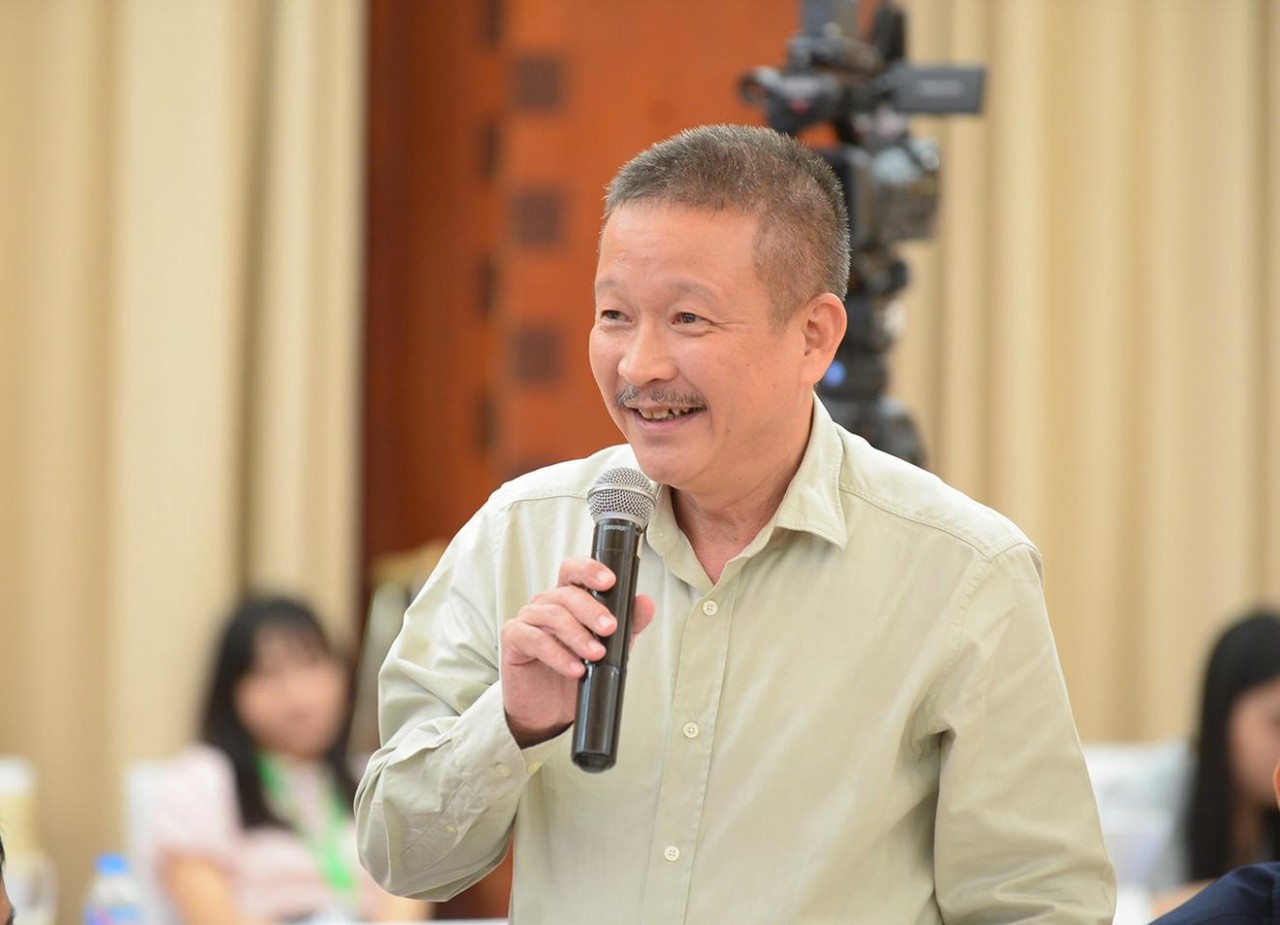 |
| Mr. Nguyen Duy Hung, Chairman of the Board of Directors, ensures the operation and reputation of Tan Hiep Phat Company. |
First, the goal of building and developing enterprises should not stop at individual firms or the wealth of a few entrepreneurs. The broader aim is to contribute to national development, strengthen economic self-reliance, and safeguard national defense and security. In an era of unpredictable political and economic fluctuations, both businesses and the nation must prepare for all scenarios.
Many countries—such as Germany, Japan, South Korea, India, and China—have adopted policies to support domestic enterprises as part of a long-term strategy to build autonomous, sustainable, and high-value economies.
Enhancing the competitiveness of Vietnamese enterprises must always align with optimizing the benefits of Vietnam’s supply chains and value chains—because the competitiveness of businesses is inseparable from the competitiveness of the nation.
Alongside developing large enterprises capable of competing internationally, it is essential to build a strong base of domestic enterprises closely linked to Vietnamese supply chains and long-term national interests.
Second, trust is a crucial factor in business. Enterprises need confidence in consistent, predictable, transparent, fair, and enforceable policies.
Businesses and all stakeholders—partners, customers, employees, and shareholders—must trust one another. A product’s brand is a guarantee of quality; consumers need trust that products and services are safe, high-quality, and reasonably priced. Businesses, likewise, need trust in their own ability to invest and grow.
The State also needs trust—trust in the transparency, responsibility, and capabilities of enterprises. With trust, the government can reduce administrative procedures, streamline licensing and inspections, grant greater autonomy to businesses, and assign them major projects.
“Consider that Vietnam has around five million household businesses contributing 30% of GDP and nine million jobs. Many of these households hesitate to scale up into formal enterprises because of tax burdens, compliance costs, reluctance to expand, unclear benefits, and fears of unforeseen risks.
 |
| Trà Xanh Không Độ is now exported to over 20 countries and territories, a testament to its quality and global appeal. |
In supply chains across Vietnam, medium- and long-term agreements on raw materials and services are rare. Most arrangements are short-term, making long-term planning difficult for all parties.
For 30 years, Tan Hiep Phat has relied on long-term vision and trust—reinvesting all profits, investing over US$300 million in 12 world-class aseptic lines and eight factories, creating jobs and contributing to the national budget,” Hung said.
Third, national quality infrastructure (NQI) remains a challenge. Despite improvements, gaps persist between Vietnam’s quality standards and global standards. Certifications accepted in Vietnam do not always meet mandatory standards abroad.
Some global standards are compulsory internationally but not in Vietnam. This leads to what some describe as “domestic standards mismatched with foreign standards.” Many products labeled as meeting standards fail to reflect actual quality, while unbranded, unregulated goods still circulate widely—along with counterfeit products of inferior quality.
NQI is the legal and technical framework for standards, measurement, conformity assessment, and accreditation. It helps enterprises improve product quality, meet domestic and global consumer demands, expand into new markets, and reduce technical trade barriers.
“As of late 2023, Vietnam had around 13,500 national standards (TCVN), about 62% harmonized with international standards such as ISO and IEC. Countries like Singapore, Malaysia, and Thailand have even higher harmonization rates.
Tan Hiep Phat applies stringent global quality management systems such as HALAL certification and U.S. FDA standards.
High standards protect consumers and compel producers to comply, influencing farmers, suppliers, and distributors. Just like athletes must train under strict standards to compete internationally, enterprises must meet high benchmarks,” Hung emphasized.
Fourth, Vietnam must strengthen its domestic supply chains and value chains. Global value chains involve multiple countries in sourcing, production, distribution, and consumer support. They emphasize specialization and maximized mutual benefits.
To join global value chains successfully, enterprises must continuously innovate and deliver superior value. Participation should not be viewed solely through the lens of exports—Vietnam’s domestic market is also part of the global landscape. Businesses that do not integrate global standards and supply chains risk losing competitiveness even at home, especially as imported goods and global e-commerce platforms expand.
Trade protectionism is not a sustainable solution and may affect bilateral and multilateral relations. The only viable path is to strengthen the competitiveness of Vietnamese enterprises linked to domestic supply chains and national value systems. This includes major enterprises, workers, farmers, suppliers, distributors, and especially five million household businesses—the foundation of Vietnam’s dynamic private sector.
These supply chains must be built on trust, high standards, and long-term benefits to create an independent and resilient Vietnamese economy—not isolated, but strong enough to integrate and adapt proactively.
Ultimately, improving competitiveness protects domestic supply chains, deepens global integration, and increases added value. Each Vietnamese product’s competitiveness is also the competitiveness of the entire supply chain.
As a beverage producer using tea and herbs sourced from local farmers, Tan Hiep Phat connects thousands of suppliers, 700,000 distribution points, and maintains 3,500–4,000 direct employees—most input costs spent domestically.
Fifth, beyond investments in innovation, technology, and human capital, Vietnam must leverage its existing strengths. Geographical indications (GIs)—products with qualities tied to their origin—offer advantages. As of August 2024, Vietnam has protected 141 GIs, including lychees from Bac Giang, Hung Yen longan, ST rice from Soc Trang, Phu Quoc fish sauce, Ha Long squid paste, and Bát Tràng ceramics.
However, only 41 Vietnamese products are internationally protected—39 in the EU and two in Japan. Policies are needed to identify and protect more Vietnamese-origin products abroad to strengthen brand value and expand global presence.
 |
| With its consistent quality and adherence to international standards, Trà Xanh Không Độ has proven its ability to break beyond local boundaries. Today, it is exported to over 20 global markets |
Sixth, choosing the right partners in international integration is vital. Global integration brings opportunities and risks. One major opportunity is direct access to world-class knowledge and technologies.
Vietnamese enterprises should seek partnerships with reputable global leaders to accelerate development. “Standing on the shoulders of giants” saves time and amplifies growth.
Over its 30-year journey, Tan Hiep Phat has partnered with top global players in beverage technology and materials, including GEA (Germany), KRONES (Germany), HUSKY (Canada), BRENNTAG (Germany), and TAKASAGO (Japan).
Seventh, businesses must be ready to transform, accept losses, and seize opportunities amid volatility. Market fluctuations, conflicts, and trade tensions can disrupt production costs, trade barriers, investment flows, and labor markets.
Change is difficult and may cause losses, but readiness to adapt minimizes risks and enhances long-term resilience. Market volatility may be a threat to some but an opportunity to others—businesses must grasp opportunities when they arise.
The State focuses on national goals, while enterprises pursue their own business objectives alongside social responsibilities.
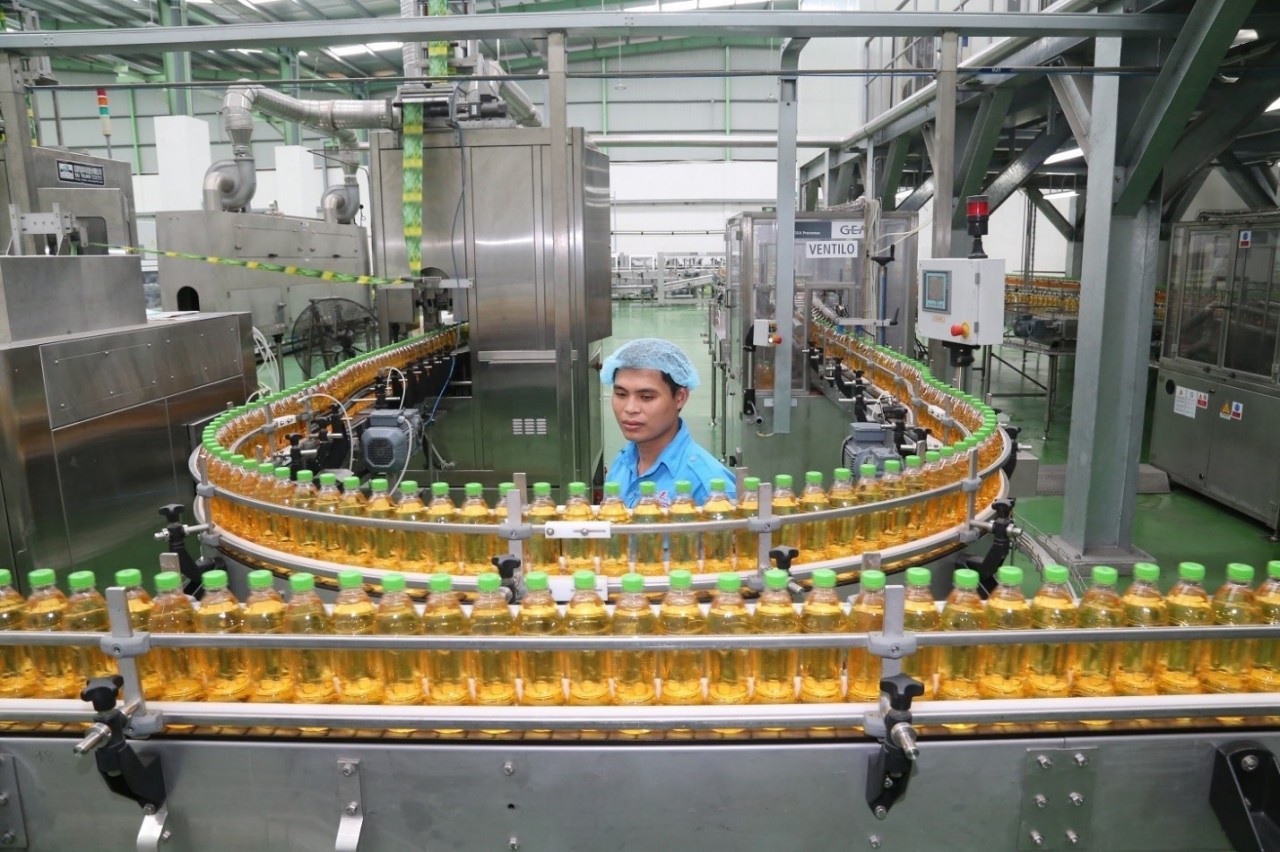 |
| The latest 7th-generation Aseptic Cold Filling system has allowed Trà Xanh Không Độ to reduce the weight of its PET bottles by 50% — from 27g to just 13.5g — cutting CO₂ emissions by 20% per bottle. |
“To date, Tan Hiep Phat has implemented comprehensive strategies in technology investment, R&D, innovation, digital transformation, human resources, circular economy, and sustainability to enhance competitiveness and fulfill social responsibilities.
We recommend policies that build a trustworthy, high-standard, and fair competitive business environment, strengthen Vietnamese brands, and develop strong domestic enterprises linked to national supply chains and value chains—to ensure economic self-reliance and national security in all circumstances.
Tan Hiep Phat believes that with the Party—led by the General Secretary—and the Government—led by the Prime Minister—fully recognizing existing challenges and demonstrating determination for reform, Vietnam will achieve its development goals.
Private enterprises are not just a major driver of economic growth; they also spread the spirit of entrepreneurship and service,” Hung affirmed.
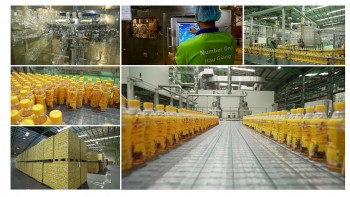 | From Sterile Technology to Unstoppable Passion: The Journey of Number 1 in Powering Millions of Vietnamese For more than two decades, Number 1 has not only energized generations of Vietnamese consumers but also led the way in clean, green and sustainable ... |
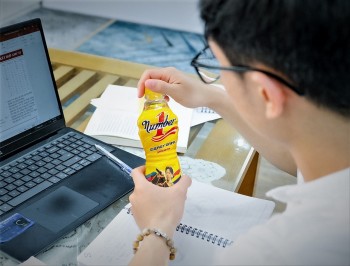 | Gen Z Says No to Preservatives and Chooses Clean Energy: How Number 1 Achieved the Impossible 8 a.m. Quang Minh (27, accountant, Ho Chi Minh City) opens his laptop. Year end deadlines are waiting. In his hand is a bottle of ... |
 | Spreading Love from the Central Highlands: When Businesses Join Hands to Bring Knowledge, Light, and Healthcare to Remote Communities In Kon Chiêng Commune, one of the most disadvantaged areas of Gia Lai Province, the 31st “Action for Community” program brought a warm August filled ... |
 | What Makes Number 1 More Than Just an Energy Drink? Gen Z today wants to stay sharp and full of energy, but without sacrificing the balance they work hard to maintain. It sounds contradictory, yet ... |
 | Steadfast in His Passion: The Story of a Man Who Guards the Night’s Peace 10:30 p.m. The lobby of a 40 story apartment building in the heart of the city is still bright with lights. People come and go, ... |
Recommended
 Vietnamese Herbal Tea
Vietnamese Herbal Tea
Fueling Passion from the Welding Workshop: When Dreams Are Powered Every Day
 Vietnamese Herbal Tea
Vietnamese Herbal Tea
November and the Final Sprints to Cool Down Life
 Vietnamese Herbal Tea
Vietnamese Herbal Tea
Hitting Emotional Rock Bottom, Breaking Out of Burnout: Gen Z Head to the Mountains and the Sea to Cool Down Life
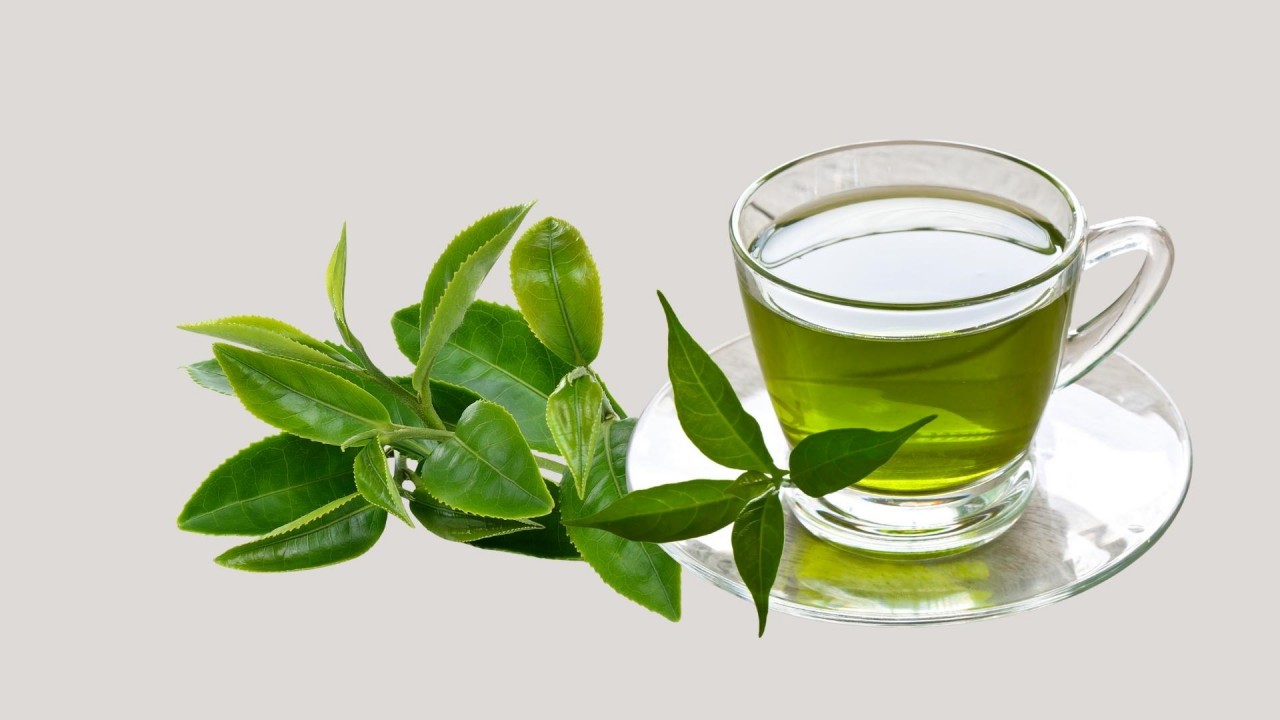 Vietnamese Herbal Tea
Vietnamese Herbal Tea
Why You Should Drink Green Tea Every Day?
Popular article
 Vietnamese Herbal Tea
Vietnamese Herbal Tea
Gen Z Finds Their Chill with Zero Degree Green Tea During Stress Season
 Vietnamese Herbal Tea
Vietnamese Herbal Tea
Multitasking and Juggling Jobs? No Big Deal. Gen Z Shares How They Stay Energized and Alert Despite Late Nights and Sleepless Hours
 Vietnamese Herbal Tea
Vietnamese Herbal Tea
Fuel Up for Instant Alertness During Long Days and Late Nights
 Vietnamese Herbal Tea
Vietnamese Herbal Tea





